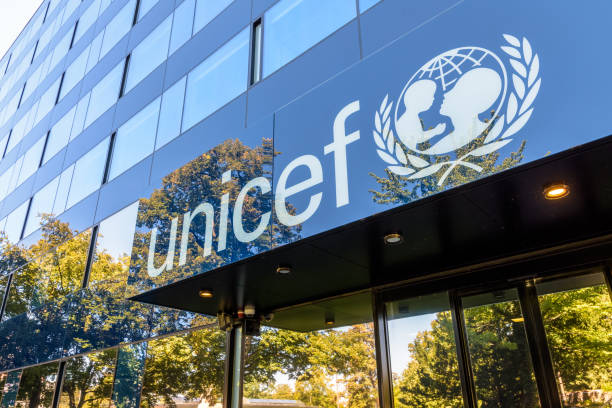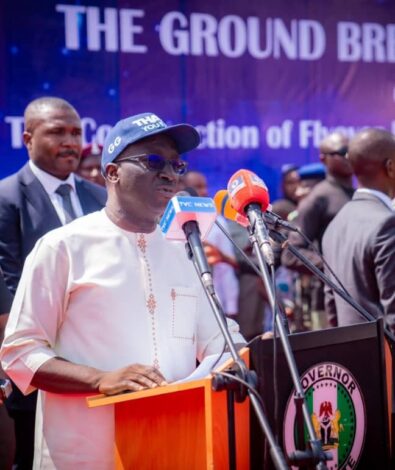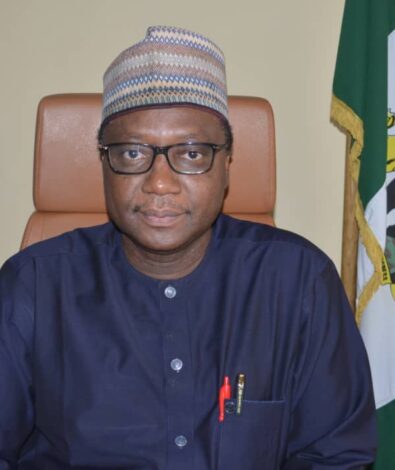UNICEF empowers nearly 9 million Nigerian youths in digital learning, skills development

Generation Unlimited Nigeria (GenU 9JA), a collaborative platform led by the United Nations Children’s Fund (UNICEF), has empowered nearly nine million Nigerian youths in digital learning, skills development and livelihood pathways.
This ambitious Public-Private-Youth-Partnership (PPYP) initiative is designed to help young people transition smoothly from education to productive employment and active citizenship.
Cristian Munduate, UNICEF Nigeria Representative, said this at the Group’s annual Steering Committee meeting in Lagos to celebrate three years of groundbreaking achievements and set ambitious targets for the future.
The meeting reaffirmed GenU 9JA’s commitment to transforming the lives of millions of Nigerian youths by connecting them to opportunities for skills development, digital learning, and livelihood pathways.
The committee reviewed progress across the initiative’s three core pillars: Connectivity and Digital Learning, Workplace Readiness, and Youth Engagement, as key partners presented updates on their respective contributions, underlining how collaboration has driven success.
The meeting was attended by GenU 9JA partners from the government, private sector, civil society, UN organisations, and young people from across Nigeria.
Youth and stakeholder engagement in Nigeria’s development
Munduate, who reiterated the urgency for continued investment in youth, said that since its inception, UNICEF GenU 9JA had empowered nearly 9 million young Nigerians, surpassing the three-year target of 7.5 million.
- According to her, this milestone positions the Initiative well on its journey to achieving its 2030 goal of connecting 20 million young people with opportunities for growth and impact.
- On GenU 9JA achievements over three years, Munduate listed Digital Learning and Connectivity, Workplace Readiness and Youth Engagement.
- She explained that more than 800,000 young Nigerians now have access to digital learning tools, such as the Nigeria Learning Passport (NLP) bridging educational gaps in underserved areas.
- She added that more than one million youth have gained employability skills and livelihood opportunities, while over 500,000 young people have participated in youth-led programmes, amplifying their voices as changemakers in their communities.
“The future of any nation lies in the hands of its children and youth. By providing skills, opportunities, and a platform for engagement, we are not only changing individual lives but also shaping a brighter future for Nigeria,” Munduate said.
Speaking, the Chief Executive Officer of Airtel Nigeria, Carl Cruz, emphasised the transformative potential of digital access, citing the ongoing UNICEF-Airtel Reimagine Education Programme, a part of the GenU 9JA initiative.
“Airtel is proud to play a role in ensuring no young Nigerian is left behind in this digital age.
“We are encouraged by the success recorded so far among the 1,260 schools connected through our partnership,” he said.
The Chief Executive Officer of Tony Elumelu Foundation (TEF), Somachi Chris-Asoluka, highlighted the impact of youth entrepreneurship:
“Young people are the engines of Africa’s economic transformation. Since 2015, the TEF Entrepreneurship Programme has empowered over 20,000 young entrepreneurs, creating more than 400,000 jobs.
“Our BeGreen Africa initiative will now support over 400 young entrepreneurs in Nigeria, Kenya, Morocco, Senegal, and South Africa, with green-focused training, mentorship and seed capital to advance sustainable ventures,” Chris-Asoluka said.
Call for increased investment in Nigerian youth
The committee concluded with a call for continued investment in Nigeria’s youth, urging the government, private sector and civil society to further their support for young people by ensuring they were prepared for meaningful contributions to Nigeria’s development.



